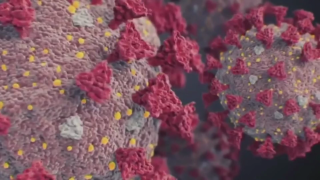
A new study has found that individuals who had exposure to the common cold coronavirus also may have built up some pre-existing immunity to the genetically related virus, Covid-19.
The study, led by researchers at Rutgers University and Lagos University Teaching Hospital in Nigeria, may help bolster global infectious disease preparedness and vaccine development with its insights, according to a Rutgers press release.
The study examined the immune responses from two groups of people living in Lagos and Nigeria: health care workers in a teaching hospital and members of the general population from five different locations.
Watch NBC 4 free wherever you are
"Of the 83% of individuals in our study who had common cold coronavirus exposure, we found that their T cells cross-reacted to SARS-CoV-2, hinting at the fact that people who have been exposed to these genetically related coronaviruses have immune responses that may be protecting them from future SARS-CoV-2 infections," said Bobby Brooke Herrera, an assistant professor of global health at Rutgers Global Health Institute and a lead author of the study along with Sulaimon Akanmu of Lagos University Teaching Hospital in Nigeria.
The study's researchers say their findings are unique because it examined people at a time during the pandemic when the vaccine was still being administered, so data was collected on individuals before and after they received the shot.
Get Tri-state area news delivered to your inbox with NBC New York's News Headlines newsletter.
Now researchers are hoping to use what they have learned to develop a T cell-based vaccine that could help protect against future Covid-19 variants.
“We’re trying to understand if T cell-based vaccines truly cross-protect,” Herrera said. “We know that they can cross-recognize other coronaviruses, but not whether cross-recognition actually means cross-protection. If it does, that potentially leads to a novel strategy for coronavirus vaccine development.”



